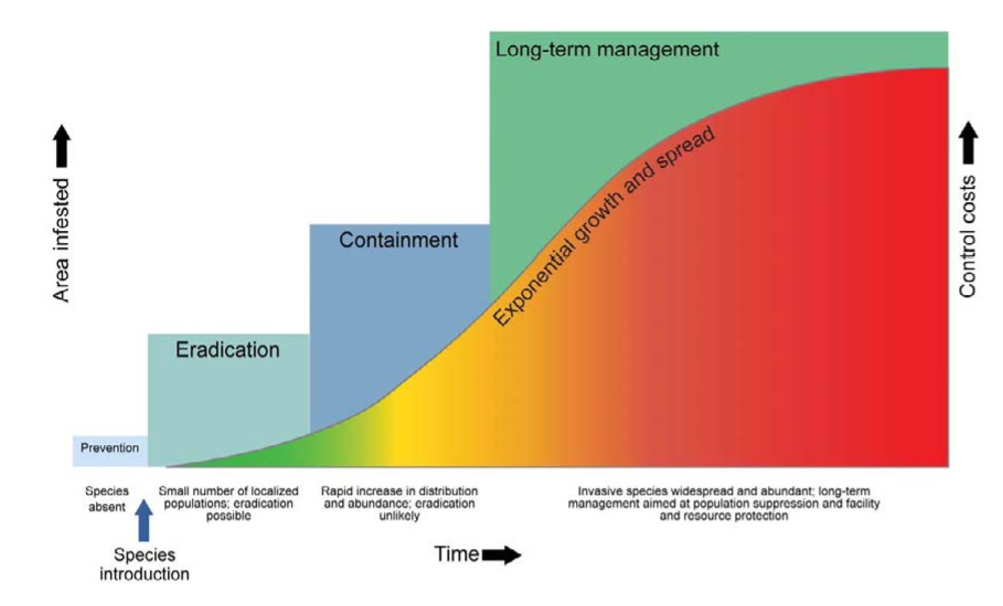On 28 October, Dr Alison Dunn, lead academic on iCASP’s Invasive Non Native Species (INNS) project gave a keynote presentation at the International Conference on Aquatic Invasive Species about the growing problem of invasives, and the work she is doing to address this.

Because of the growing threat that some invasive species pose to our natural environment, and even in some cases to human health, there’s a real need to stop or dramatically slow their spread. One example of a particularly nasty invasive species is Giant Hogweed , a plant that can cause severe burns on human skin resulting for some people in long-term skin sensitivity problems; the current cost to UK local authorities of tackling this particular plant species is over £365,000 a year. It is this growing problem and cost of dealing with invasive species that is the driver for much of Dr Dunn’s work.
Her iCASP project is breaking new ground by working with local authorities to improve their biosecurity policies and procedures, and embedding this into their routine activities to slow the spread of invasive species. The project draws upon learning from another of her projects working with several organisations in the heart of the Yorkshire Dales to ensure that learning, resources, and successful ways of improving biosecurity are shared.

Local organisations and authorities are not the only people whose awareness and actions Dr Dunn is seeking to change; she gave evidence to the House of Commons Environmental Audit Committee’s inquiry into Invasive Species earlier this year stressing the importance of improved and robust biosecurity:
“Check Clean Dry and Be Plant Wise are flagship campaigns by DEFRA and we have found that where people are aware of those campaigns, their biosecurity behaviour does change, but awareness is not very high”
The report of the inquiry was published last week and biosecurity features strongly in the recommendations from the Committee to the Government. We now need to wait for the government’s response and whether changes are made to policy and legislation longer term.
The INNS iCASP project runs for another year and seeks to develop guidance and biosecurity protocols that will be embedded within local authorities across the Yorkshire region and will ultimately be made available to be used by organisations worldwide to help slow the spread of INNS.
